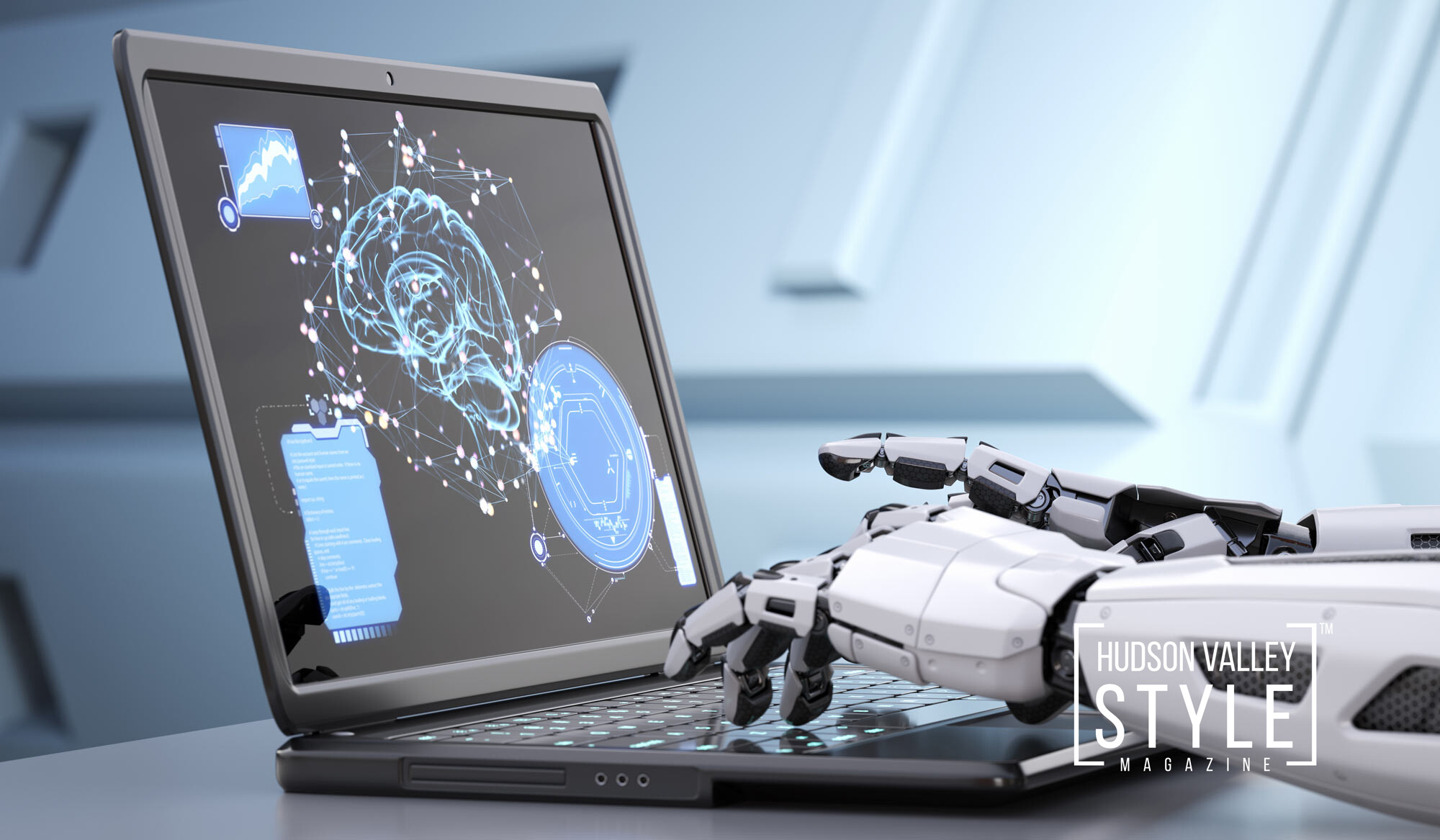AI is one of the fastest-growing industries in history, and the machines and software it creates have the potential to automate millions of jobs. They’re already designed to do much of what doctors, lawyers, engineers, and other professionals do—whether it’s designing complicated systems, providing better customer service, or writing more accurate legal briefs—and they’re learning how to perform those tasks more quickly and efficiently than humans ever could. As artificial intelligence becomes more prevalent in the workplace, here are five jobs that will be automated by AI…
5 Jobs That will be Automated by AI – Engineers, Doctors, Lawyers, Politicians, Stock Traders – by Maxwell Alexander, MA, BFA, BS, EIC, Hudson Valley Style Magazine
Are you an IT professional or an engineer?
Robots are increasingly moving into white-collar jobs, with IBM’s Watson and a range of other technologies threatening to take over even skilled professions. In fact, a recent study from Oxford University predicts that 47% of U.S. jobs are at risk of being replaced by automation in just twenty years, including lawyers and doctors. In short, if you’re an IT professional or an engineer—or any other job where you perform repetitive tasks—you’ll want to look for another way to make a living before your job becomes obsolete. If you can’t beat ’em… well, it’s time to join ’em and learn how to be a creative human!
Lawyers face tough competition
Almost half of all law school graduates who took the bar exam for first-time licensure failed to pass it on their first attempt, according to a recent report by The National Conference of Bar Examiners. Many analysts predict that as artificial intelligence becomes more sophisticated and ubiquitous, a good number of these newly minted lawyers won’t have much work. If you plan to become a lawyer, consider retraining in an area where your skills are likely to complement new technologies rather than compete with them. Aspiring computer engineers might benefit from gaining some legal experience, but technologists are better off focusing on other areas—like product design or data analytics—for now.
Today’s doctors are tomorrow’s nurses
In 2015, IBM’s Watson system was able to correctly diagnose leukemia from just one biopsy. The technology may sound like something out of a sci-fi movie, but it’s actually being used today. In India, Dr. Tathagata Roy is using Watson with Tata Medical Center to help diagnose cancer patients more quickly and efficiently than ever before, as well as helping to get patients on treatment plans that maximize their chances of survival. Not only does he use data pulled from thousands of medical journals—far beyond what a single doctor could read in years—but also he can now compare cases against each other to see how similar cases turned out. This means he doesn’t have to rely solely on his own expertise (and mistakes) for guidance; rather, he can look at how other doctors handled similar situations and figure out if there are patterns that could help him improve future diagnoses or treatments.
Politicians and managers are doomed
At present, jobs in management and administration make up around a third of all American employment. In the future, that figure is likely to drop as artificial intelligence makes certain white-collar professions obsolete. There won’t be anyone to boss around, so people with obsessive controlling tendencies are in trouble. Governmental managers or politicians are arguably more polarizing than sports teams, and just as (if not more) likely to generate heated debate. As technology becomes increasingly intertwined with our everyday lives, however, our relationship with politicians is changing, too. Nowadays, artificial intelligence programs are already informing policy decisions and being used to predict future political events such as elections; it’s only a matter of time before they start holding office themselves—and at that point, politics could look very different from what we know today. AI doesn’t have human needs, so it’s less likely to get corrupt, and this is exactly what we need from our political leaders.
Are you a stock trader?
Stock trading is one of those careers that people have wondered about for a long time; with so many reports about robots taking over our jobs, is it possible for humans to compete against machines? The answer seems to be yes at least for now. In 2017, researchers published an analysis of nearly 15 years of stock market activity and found that automated algorithms had affected less than 1% of all orders. But even though your job as a stock trader might be safe for now, it doesn’t mean you can rest easy. After studying decades worth of data on artificial intelligence, researchers in 2016 made their best prediction yet on which professions are most likely to be replaced with robots first—and your trade might not make either list.
Universal Basic Income
Perhaps no economic policy has been discussed more over recent years than universal basic income (UBI), and for good reason. It proposes that each month, every citizen of a country would receive an amount of money unconditionally. There would be no strings attached and no tests to see if they are deserving of such a benefit; everyone gets it, period. As you might expect, UBI is controversial in many countries but is being seriously considered as a way to keep automation from destroying our job market as it advances further into what we think of as traditional work. In fact, Finland just began a trial run on UBI just last year: 2,000 Finns received 560 euros every month for two years with zero questions asked about why they deserve or need the money. If successful, it’s possible that other nations may adopt similar programs in order to ensure their citizens can maintain some level of financial stability in an automated world. After all, what happens when your robot starts replacing people faster than new jobs can open up? Instead of expecting governments and corporations to find ways to create enough jobs at even lower wages, perhaps we should start asking whether some form of UBI could become a realistic fix instead.





